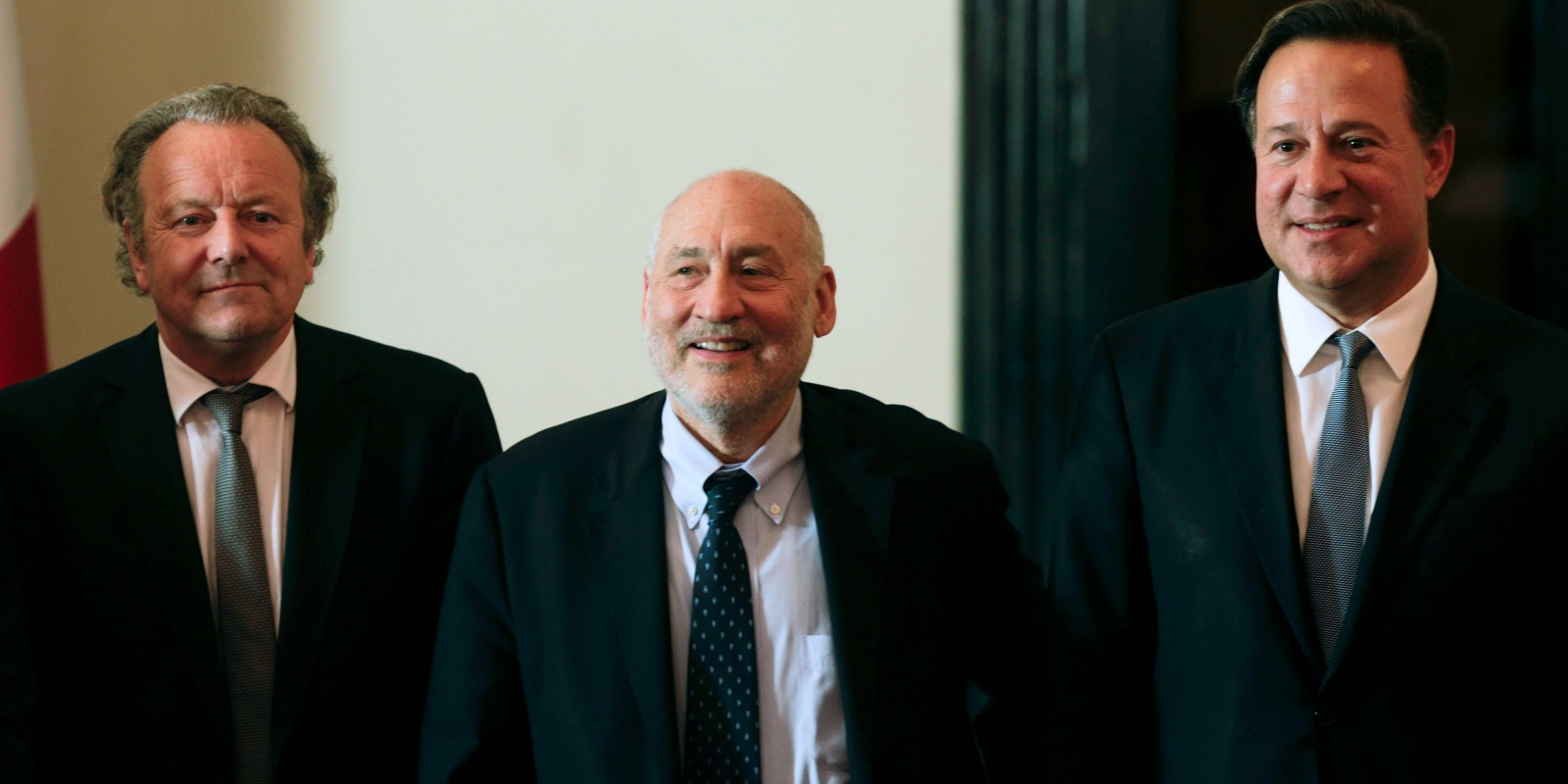Nobel Prize-winning economist Joseph E. Stiglitz has resigned as chairman of a Panamanian government commission set up to investigate the Central American country’s offshore financial industry in the wake of the Panama Papers scandal, saying that government officials have refused to give the panel full independence.
Stiglitz and Mark Pieth, a Swiss anti-corruption expert, wrote Panamanian President Juan Carlos Varela on Friday that they were pulling out of the study committee because they fear government officials will limit the panel’s freedom to investigate and keep its final report secret.
They said in the letter that government officials had declined to commit to public release of the panel’s report and instead had insisted the group’s findings would be the “property” of the government and that Panamanian authorities would have “sole responsibility” for any public announcements. Such restrictions, they said, made no sense considering that the panel was set up to investigate concerns about how offshore secrecy encourages money laundering and other misconduct.
“How can a group allegedly committed to transparency write a report that is not transparent? It would undermine our own credibility,” Stiglitz said in telephone interview Friday afternoon. “Evidently they wanted us to be part of a charade to convince people they were serious when in fact they weren’t.”
A government spokesperson issued a brief statement saying Panamanian officials regretted Stiglitz and Pieth’s exit from the panel and adding that the government “understands both resignations” are related to “internal differences” within the panel “over which it won't intervene.”
The statement added: “The Government of Panama reiterates its firm and real commitment to transparency and international cooperation” and how showed this commitment “with clear actions that have been recognized by the international community.”
In their resignation letter, Stiglitz and Pieth urged that the independent committee disband. Stiglitz said he and Pieth will likely issue their own separate report, which will make the case that being more transparent will help Panama’s economy in the long run.
Panamanian authorities established the panel – appointing four members from Panama and three from outside the country – in April.
President Varela called for the creation of the committee after the International Consortium of Investigative Journalists and more than 100 other media partners began publishing stories exposing how a Panama-headquartered law firm, Mossack Fonseca, had set up hard-to-trace shell companies for politicians, professional athletes, organized crime figures and money launderers from around the world. The resulting media firestorm forced Panama’s government to respond.
Varela said at the time panel was formed that his administration was committed to “bulletproofing” Panama’s financial services sector “against threats from people and groups who want to use it for illegal activities.”
The commission is supposed to make recommendations to Varela and other Panamanian officials and write a report on their findings by the end of this year.
Stiglitz and Pieth said that committee members had agreed during a meeting in New York in early June that Panama’s government needed to make the committee’s report public no matter what its findings. Pieth said in an interview Friday with Tages-Anzeiger, a Swiss newspaper that collaborated on the Panama Papers investigation, that he and Stiglitz decided to resign after an official with Panama’s foreign ministry sent them a “rude” letter on July 29 that said the government wouldn’t commit to releasing the report.
“We were a little shocked,” Stiglitz told ICIJ. “Before we took the action to resign, we made an effort to contact the vice president or president, and we were rebuffed. We never got through.”
Pieth told Tages-Anzeiger that he and Stiglitz agreed that “we don’t write secret reports. If you want to have a clean financial center, transparency is the top priority.”
In their letter to Varela, Stiglitz and Pieth wrote: “We believe that transparency is at the core of our mission – transparency in Panama’s corporate and financial sectors and transparency regarding the Independent Committee’s process, findings and final reports. Given our commitment to transparency and the fact that global standards are moving towards more disclosure not less, we believe that it’s essential that our findings be made public and that Independent Committee members shall be allowed to speak freely about our findings, recommendations and beliefs.”
Stiglitz is a professor at Columbia University in New York and shared the 2001 Nobel prize in economics. Pieth is a professor of law and criminology at Basel University and spent more than 20 years as the chair of the Organisation for Economic Co-operation and Development’s working group on corporate bribery.
Pieth and Stiglitz’s resignation letter noted that the country has made progress on meeting international standards aimed at combating money laundering and tax evasion, but said the country needs stronger laws and better enforcement when it comes to overseeing law firms, accounting firms and other key players in the offshore financial system. Because international standards are getting stronger, they said, Panama needs to do more to keep up.
If not, they said, “the gap between Panama and these global standards will increase, with substantial potential damage to Panama’s reputation and its place within the international community.”
Later Friday afternoon, after fielding questions about the two panel members' resignations, Panamanian officials distributed a nine-page document that describes itself as the committee's July 2016 “interim report.”
The document recommends more reporting requirements for offshore companies and suggests other changes in the country's regulatory practices. It says Panama should try to reduce and, if possible, eliminate “all forms” of “illicit” money flows.
Stiglitz and Pieth, however, said in their letter to President Varela that they had played no role in writing the document. Had they done so, they said, they would have made recommendations that “go far beyond” those that appear in the document.
“Neither of us agreed to that report, and it was prepared and submitted without discussion within the Committee,” Stiglitz and Pieth wrote. “Indeed, one of us is not even in receipt of the Final Interim Report, after submitting numerous requests. While there may be conclusions of that report with which we agree, that Report should not be considered the work of the Committee.”
They added that it “appears strange and non‐transparent” that a report of the committee be submitted without approval of Stiglitz, the committee's chair.




